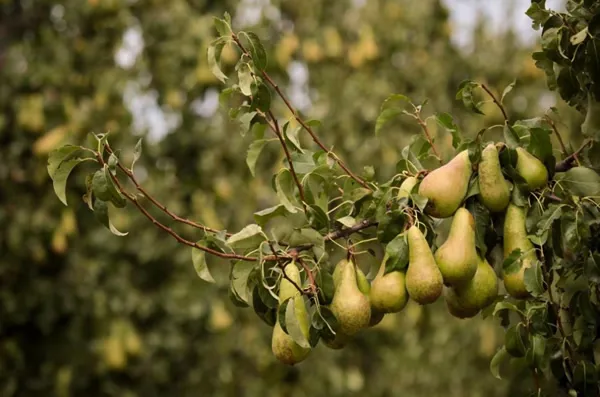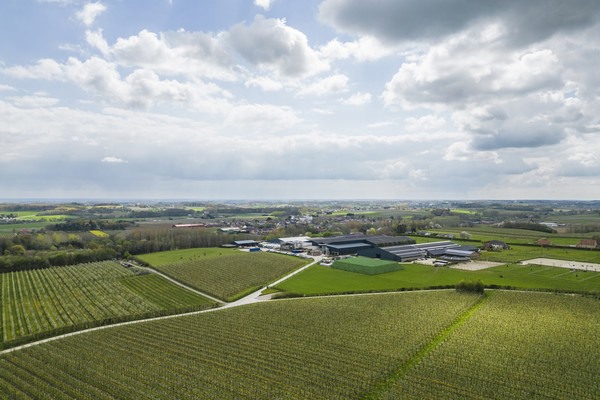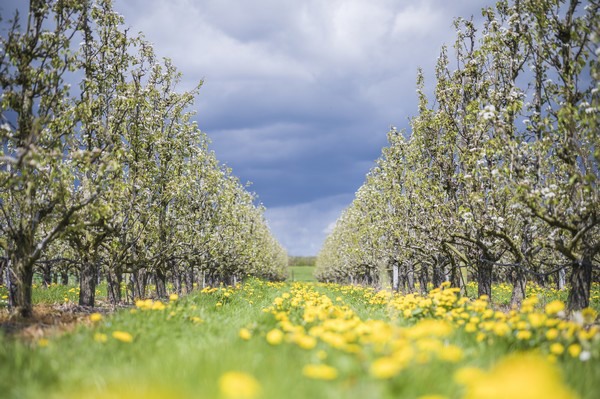As always, there is much speculation about the new crop of Belgian pears. Initially, yields were estimated to be significantly lower due to the poor spring. Then it seemed that the situation might turn out better than expected. However, it now appears that there is indeed significantly less fruit being picked after all, according to Louis De Cleene of Devos Group. "After a week of picking, we can certainly say that, not only at our farm but across Belgium, there will be less fruit on the trees than anticipated. We expect about 25 percent less compared to a normal harvest."

"This week, I spoke to one of our growers who had been picking for three days," continued the commercial manager of the Bekkevoort, Flanders-based cultivation and trading company. "He mentioned that he was now a day and a half ahead of schedule because there is so little fruit on the trees. That is quite striking. On the other hand, this will prevent us from having an oversaturated market. However, this season we are facing competition from a number of countries that have had better harvests than last year. The volumes are still not huge, but, especially in Italy, for example, there is a recovery from last year's disastrous season. Still, we expect a positive season for both cultivation and trade."
More expensive small pears
It will be tougher in the smaller pear market, though. "The size of the pears is generally larger this year because there is less fruit on the trees. As a result, I believe we will have to disappoint our customers who prefer smaller sizes. This is already happening, and it's unfortunate, especially as we are grateful to have those customers in other years. This will cause the small pears to become more expensive, especially relative to the larger sizes. For those larger calibers, we need to ensure that we can maintain strong export activity. We have to sell them at a realistic but economically sound price early in the season. Local pears are available everywhere in the first few months, so we need to offer an attractive alternative in those countries at a good price. However, I believe there will continue to be demand for Belgian Conference pears. Our pear is still appreciated worldwide because of its excellent price-to-quality ratio."

"One thing we will have to account for is pears with slight hail spots," he continues. "You can't escape that. There has been hail everywhere in Belgium, so you can see it in the grading as well. There are hardly any batches without hail damage. Fortunately, most of the damage occurred early on, so it is only superficial and does not affect the quality of the pear. However, people will have to get used to this for the upcoming season."
Deliberate spreading of risk
Looking ahead to the new season, Louis remains quite positive despite the lower volumes. "Right now, everyone is busy picking, and there will be some supply for a week or two. After that, we anticipate that many growers, due to the reduced yield, won't be in a rush to sell. Prices are also traditionally a bit lower in October and November, so many will probably wait until December or January. Hopefully, most won't wait too long, as we saw last season where that can lead. A measured spreading of risk would be best for everyone. This is how we handle our own crop, and our regular growers operate the same way."
"In recent years, it has paid off to sort and sell pears from our own portfolio throughout the year, as this automatically hedges against the market's ups and downs. We may not see miracles in sales before the New Year, but after that, we can look forward to a strong spring with good prices. If the eastern markets continue to load well and the Class 2 pears also sell steadily, there will be no pressure on the market. In that case, I foresee a year where costs are covered, giving our growers some breathing room."

Apples remain a question mark
While the outlook for pears is generally positive, the situation with apples is more uncertain, Louis notes. "At the moment, it's still a case of looking at the bigger picture. Certain plots of certain varieties have unusually low yields. We have plots of Jonagold, Gala, and Golden, for example, where you would only pick 5 tonnes per hectare, but on the other hand, there are also plots that are heavily laden. Hail and inclement weather, combined with conditions from previous years, have led to a very mixed picture. The apples that are there, without a doubt, seem to be larger."
Yet Devos' flagship apple, the Rubis Gold, seems to be faring somewhat better. "We have recently planted a lot of Rubis Gold, as have some of our regular growers. For us, it's still a learning process, but the yields don't seem to be too bad in terms of quantity. Like all apples, they will grow a bit larger due to the lower volumes on the trees, but that is certainly not a disadvantage."
For more information:
Louis De Cleene
Devos Group
Eugeen Coolsstraat 66
3460 Bekkevoort - Belgium
+32(0)16 77 97 58
[email protected]
www.devosgroup.com










